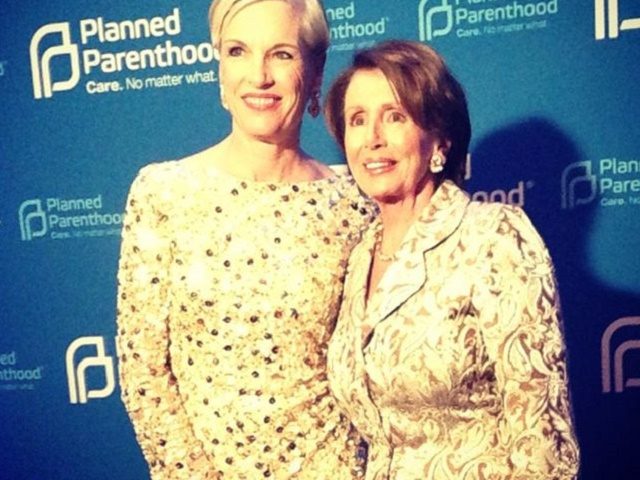By Jonathon Van Maren
In what is being widely panned as a move to court pro-lifers, the chair of the Democratic Congressional Campaign Committee Rep. Ben Ray Luján announced this week that his party would no longer apply a “litmus test” on abortion—specifically, that financial backing would not be withheld from anti-abortion candidates in the 2018 mid-terms. Considering the fact that the Democratic Party walks hand-in-hand with Planned Parenthood and hosted nearly every major abortion lobby at their last convention, this is somewhat surprising, and seems more than a little disingenuous. “Pro-life Democrats,” after all, are often progressives who claim to be “personally pro-life” but still vote the party line whenever abortion-related legislation surfaces.
It was not always so. Before abortion support became a prerequisite for success in the Democratic Party, it was not at all unusual to see politicians who saw no inconsistency between being liberal and supporting protections for life in the womb. Teddy Kennedy once claimed to be pro-life, before turning around and savagely attacking Supreme Court nominees for their own pro-life convictions in the vilest terms. Al Gore’s record in the House of Representatives show that he voted pro-life 13 out of 17 times. Joe Biden once opposed Roe v. Wade and was seen by Planned Parenthood as an inconsistent and unreliable ally. Even Bill Clinton was once uneasy about abortion, purportedly saying that, “I believe that if you can’t make up your mind in the first six months, you don’t have the right to have an abortion.”
Imagine, for example, a Democratic politician making this statement:
What happens to the soul of a nation that accepts the aborting of the life of a baby without a pang of conscience? What kind of society will we have twenty years hence if life can be taken so casually? There are those who argue that the right to privacy is of a higher order than the right of life. That was the premise of slavery. You could not protest the existence or treatment of slaves on the plantation because that was private and therefore outside of your right to be concerned.
In fact, that statement was made by Democratic politician, and one who was nearly aborted himself. That man was Jesse Jackson, and his pro-life position evaporated into thin air once he decided to run for president as the Democratic candidate. In fact, the atheist Village Voice columnist Nat Hentoff, himself pro-life, noted Jackson’s own discomfort with the switch in positions:
In his memoir, Hentoff recalls meeting Jackson on a train in 1994. As they journeyed together, Hentoff told Jackson that he frequently quoted his pro-life writings because they were among the most compelling he had read. Jackson, he said, looked troubled. Hentoff then asked the politician whether he had any second thoughts on his change of mind. Jackson looked even more troubled and said, “I’ll get back to you on that.” Hentoff ended the anecdote on this laconic note: “I haven’t heard from him since.”
Even staunchly left-wing commentators sometimes struggle with abortion. The late Christopher Hitchens was famously pro-life, noting in an essay in Vanity Fair that his mother had aborted a sibling before his arrival and after, and that at least two of his own children met their end at the hands of abortionists. In 2009, the staunchly pro-choice Jon Stewart admitted in an interview with Governor Mike Huckabee that he was unsure about it all, noting that “I can be incredibly certain about so many issues and get my dander up. This is one that I can’t. And it’s the one that I probably—in the culture—struggle with the most. I think it is a very difficult issue.”
Bill Maher, who has openly said that he believes in “killing the right people” because “the planet is too crowded, and we need to promote death,” followed that up by saying that “I’m just not one of those people who thinks all life is precious. I bet you a lot of people wouldn’t say that, but if you’re pro-choice maybe that’s really what you’re thinking anyway.” But in fact, Maher himself had earlier expressed his own discomfort with abortion:
You don’t have to be religious to be against abortion. I mean, you see the little picture of the kid in there and at some point, you know, it’s kind of wrong to kill it. (His guests frown. He hurriedly continues.) I mean, at a certain point when it’s sucking its thumb it just seems a little…(the female guest, shocked into speechlessness, stutters and tries to interrupt.) When it’s just a speck of goo on a petri dish I can get it, you know…
But is there really room for dissent on this issue in the Democratic Party? The reason for Maher’s discomfort while articulating the fairly banal point that maybe a child sucking her thumb and kicking her legs in the womb shouldn’t get dismembered is that his Democrat guests were appalled that he was infringing on the abortion extremism that defines their party’s scientifically illiterate stand on the issue. And how many other liberal commentators and celebrities would never vocalize the murmurings of their conscience on this issue because of the backlash they would face within the liberal bubble? Can you imagine what the impact of Jon Stewart articulating the pro-life position would be?
The reason that seems like such a crazy idea is that it would never happen. The abortion industry, most notably Planned Parenthood, has the Democratic Party in a vice grip and they’re never going to let go. That’s why the announcement that the Democrats might not impose an abortion litmus test on all candidates has already spawned a couple dozen outraged columns, and abortion lobby groups are firing their warning shots. The Democratic covenant with Planned Parenthood has already been sealed with the blood of millions—the last Democratic president even voted against protections for children who survived abortion attempts—and these attempts to lure a few liberal pro-lifers into voting for the abortion party are simply an empty ruse.
_________________________________
For anyone interested, my book on The Culture War, which analyzes the journey our culture has taken from the way it was to the way it is and examines the Sexual Revolution, hook-up culture, the rise of the porn plague, abortion, commodity culture, euthanasia, and the gay rights movement, is available for sale here.








